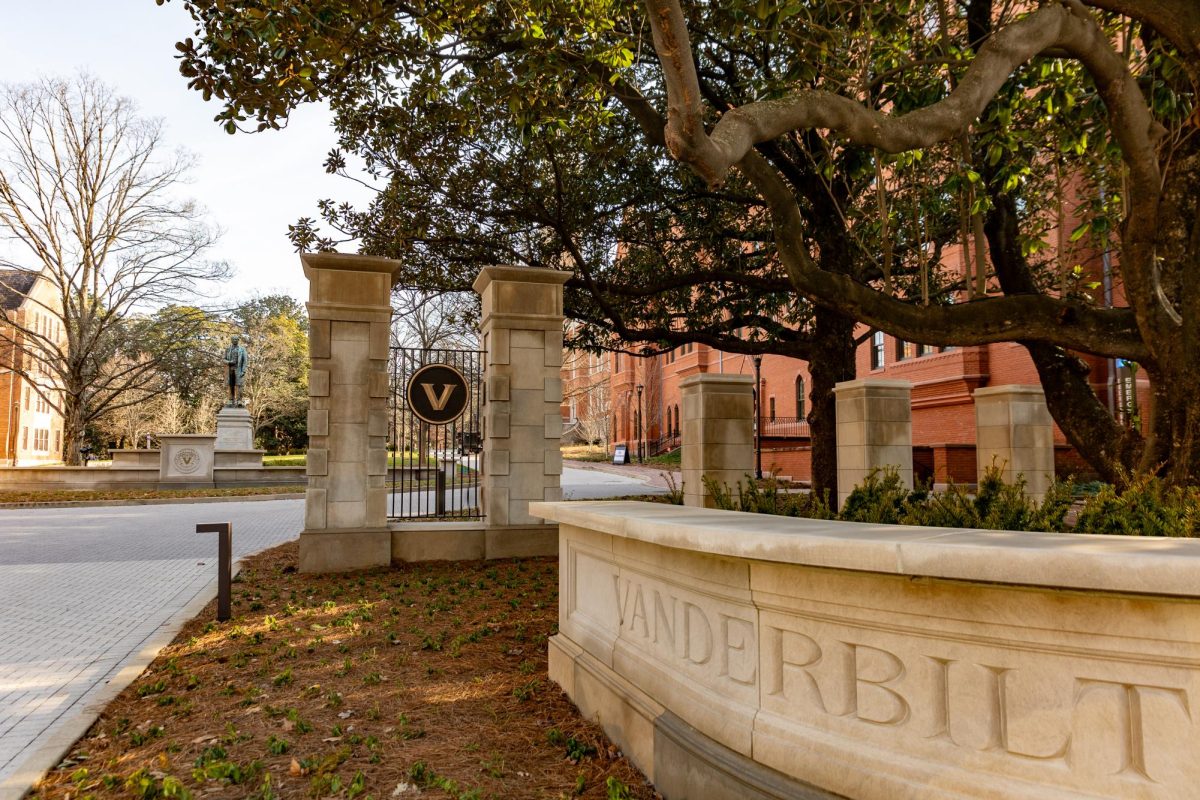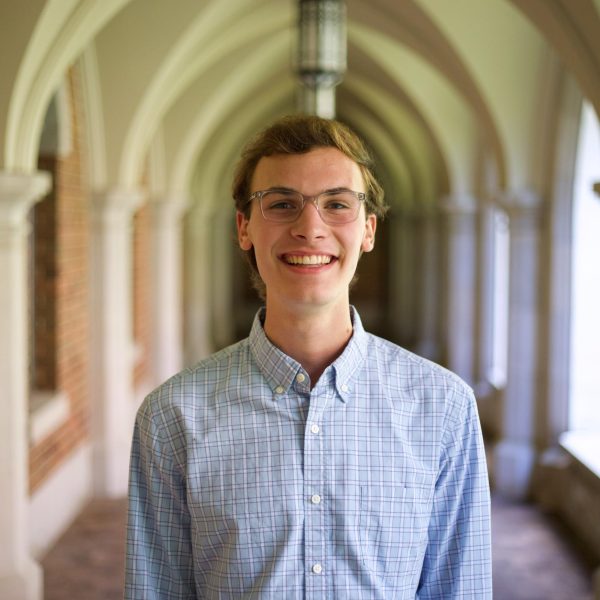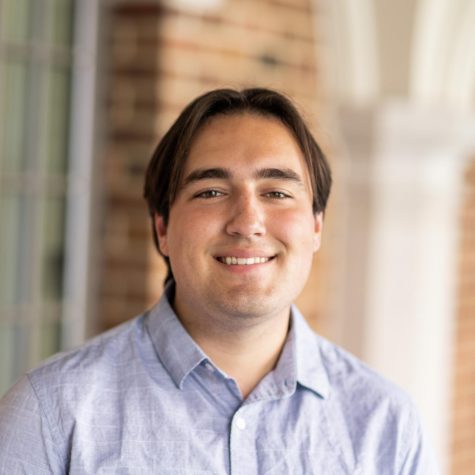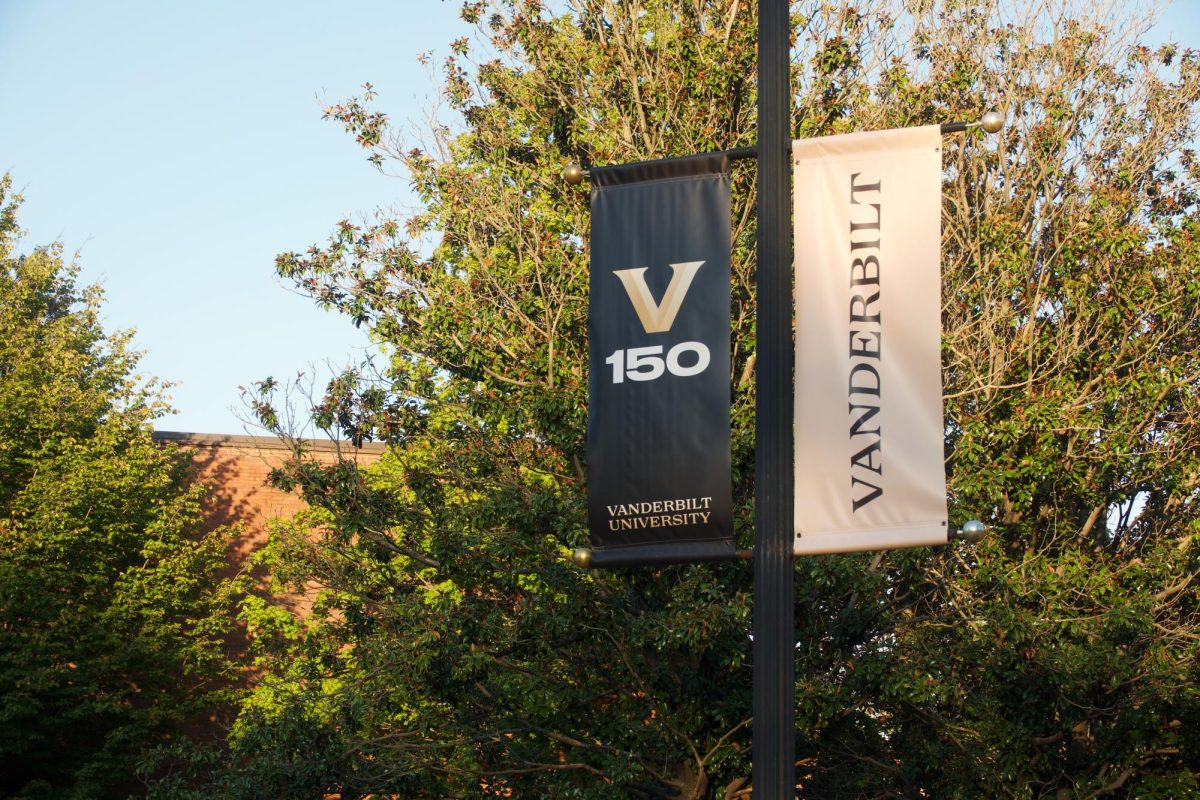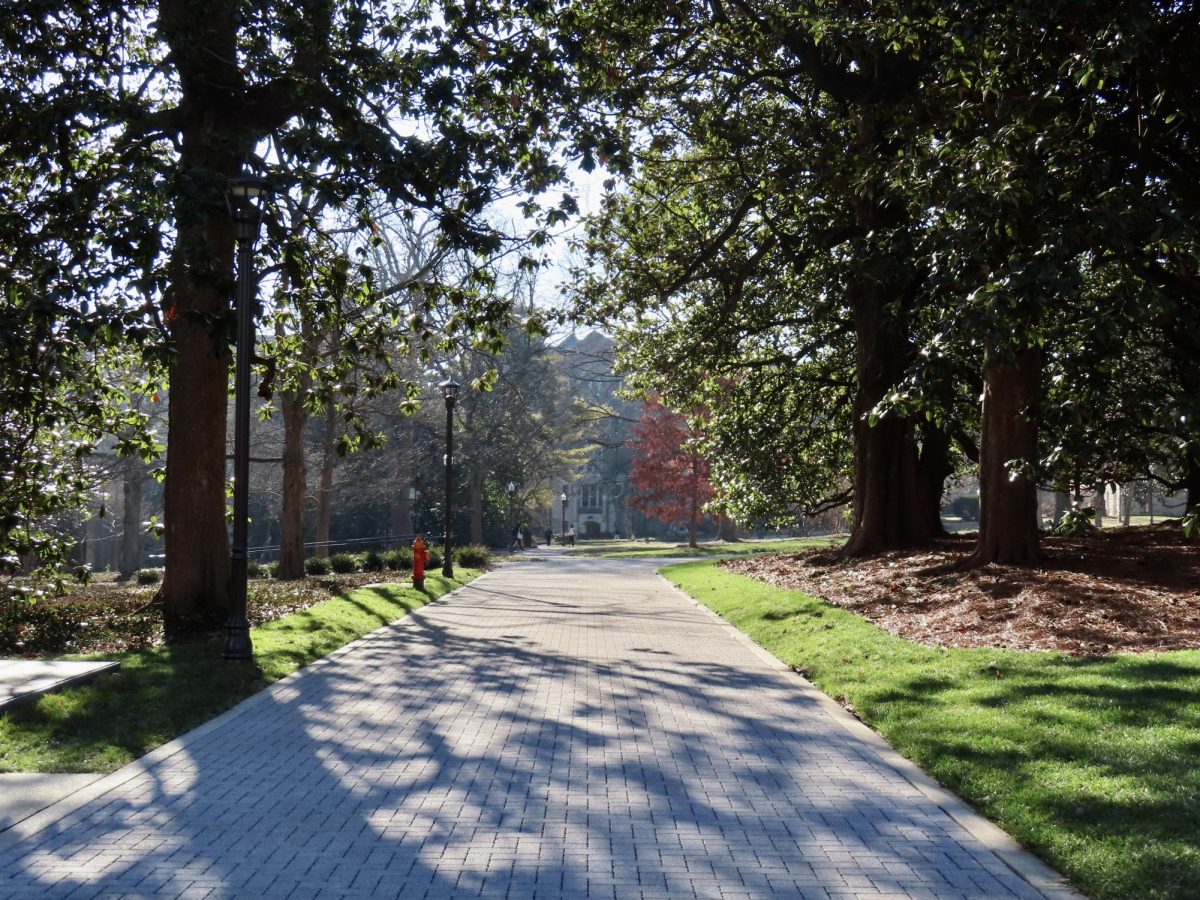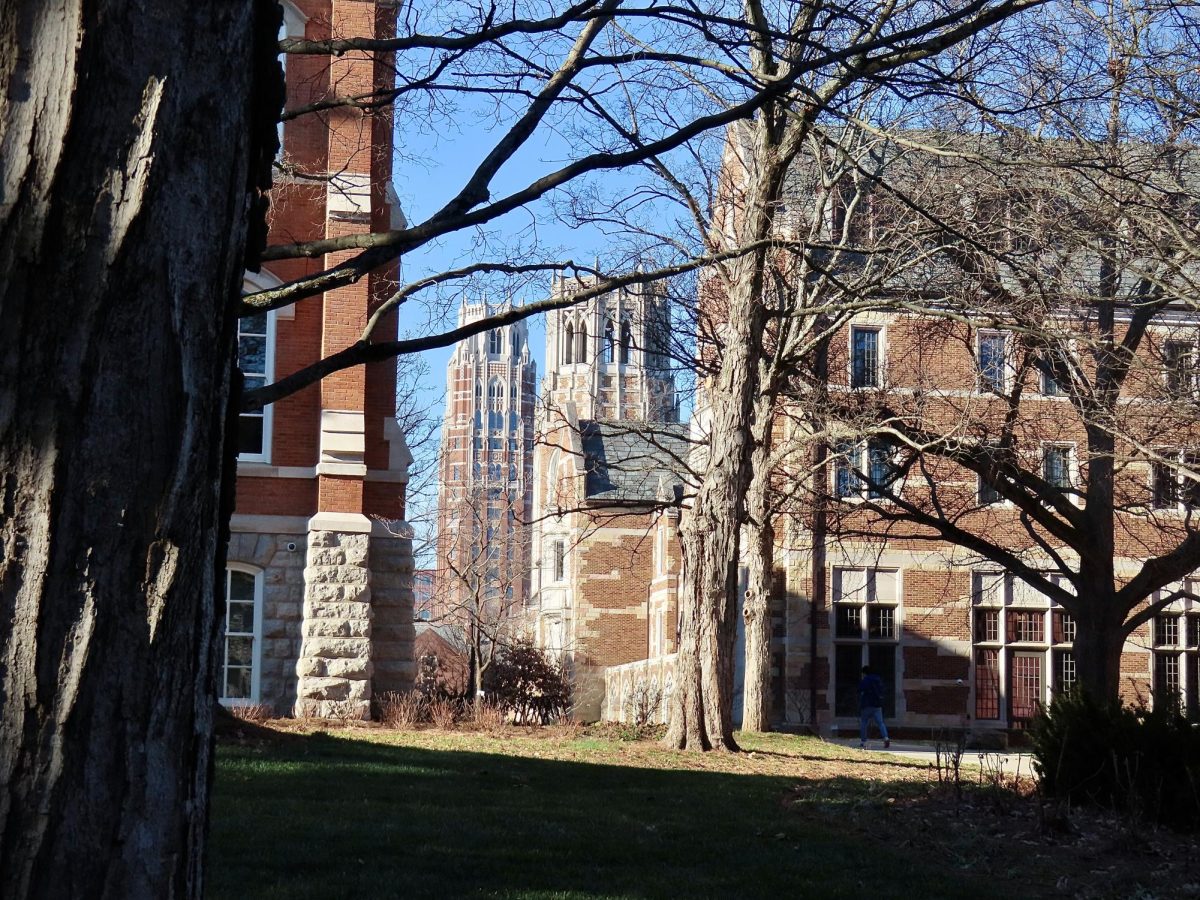The Hustler sat down on May 6 with David Brooks, a Canadian-American New York Times columnist and conservative political commentator. Brooks was chosen as this year’s Graduates Day speaker, for which he will receive Vanderbilt’s Nichols-Chancellor’s Medal.
Brooks previously worked as a film critic for The Washington Times, a reporter and opinion editor for The Wall Street Journal, contributing editor for Newsweek and The Atlantic Monthly and commentator on NPR and PBS NewsHour.
The Vanderbilt Hustler: In addition to speaking at Graduates Day, you are being awarded the Nichols-Chancellor’s medal, which is given to those who “define the 21st century and exemplify the best qualities of the human spirit.” What does it mean to you to be selected for this honor, and how do you think your work relates to this recognition?
Brooks: What I have tried to do in my life is both stand for a certain way of conducting oneself in political debate by trying to maintain some level of basic decency in a time of anger and bitter partisanship, and in my most recent work, I’ve tried to honor human dignity and the art of seeing others deeply and making them feel seen, heard and understood. Those have been my goals, and if people at Vanderbilt think I’m making a contribution, I’m deeply honored.
What are your thoughts on the pro-Palestinian protests and encampments that have been occurring on college campuses nationally and internationally, among the earliest of which began here at Vanderbilt?
I celebrate protests and rallies that are trying to spread a certain point of view, that try to lift up those who are being forgotten and cruelly mistreated. So, I have nothing against the protests and the encampments. I think the problems start to happen when it becomes disruptive to the work of the university — protests are great, until they try to silence other protests or until they disrupt classroom experiences for the students who are trying to finish their college careers. We’ve got a protest on the campus where I’m teaching right now [University of Chicago], and I’ve spent a fair bit of time wandering around just trying to observe them, listen to what they say. They make life here more interesting. We have people with wildly different points of view. It makes at least my university feel very vitally alive to have a clash of ideas, so long as they’re done in a way where people are actually listening to each other.
We had a march on May 1 here at Vanderbilt and with the community, where protesters took issue with the notion of “peaceful protest,” stating “Whose peace are we protecting? Whose death are we prolonging when we protect that peace?” How would you respond to these concerns of peace versus disruption in protests?
There’s a long tradition of civil disobedience in America. Whether going back to the 18th century or the Civil Rights Movement, sometimes you feel civil disobedience is necessary because laws are unjust. When you do that, you don’t wear a mask — you take ownership for the actions you’re doing. You accept that there’ll probably be some penalty. You’ll probably be arrested. That’s the sacrifice you’re willing to make.
I don’t think it does anybody’s cause any good to be violent in America. There are some times where you have to be violent, but I worry that if the people watching these protests think the people doing the protests are just out to sow chaos and cause violence, then you usually get a very strong counter-reaction. In the 1960s, the protesters were clearly right about the Vietnam War, yet some of the excesses of the protesters led to the successful election victories of the people the protesters abhorred — Ronald Reagan became governor of California, arguing and campaigning against protesters; Richard Nixon became president of the U.S. This is not too unusual. If you look at the big protests between 2010 and 2020, in seven out of the 10 countries where they happened, things went in a more reactionary direction because people were afraid of chaos. Being violent in most democratic societies is counterproductive.
In one of your most recent opinion pieces, you warn that ongoing pro-Palestinian protests could fuel additional support for Trump and, as a result, urge political leaders to be critical of them. However, you also acknowledge other issues as being more important to young voters and, as polls show, adults alike, such as the economy, immigration and health care. Given this, how much of an impact do you foresee campus activism having on the upcoming election?
I’m a little unclear about that. I think if protests spread to the Democratic Convention in Chicago and if they’re violent, then I think it’ll have a big impact. If not, I don’t think it’ll have particularly big impact because, as I say, even among voters 18 to 29, the foreign policy issue of Israel and Gaza ranks, I think, 15 out of 16 issues. So it would make sense that come November, people are going to vote on immigration and inflation and jobs and crime and abortion and issues like that. So as long things quiet down, I don’t think it will have a huge impact on how most voters vote.
We have seen the arrest and hindrance of reporters covering these pro-Palestinian protests on college campuses, including the arrest of a Nashville Scene reporter on our own campus. As a journalist, what is your view of the importance of freedom of the press in covering events like those of the past few months, and what advice do you have specifically for student journalists covering events like these on their own campuses?
I’ve covered hundreds and hundreds of protests over the course of my career, and it’s important that we be there. It’s important that we be given free access to talk to whoever we want. Obviously, the idea of arresting someone for doing their jobs is abhorrent to me. I have to say I worry about the violence of the protests, but I also worry about the excessive violence of the police. I’ve seen a lot of videos of cops who apparently decide policing these protests involves pulling out their old football moves and tackling protesters and excessive use of force. That kind of violence is just even more disturbing than any violence students might be doing.
What takeaways from your most recent book, “How to Know a Person,” do you think are most applicable to college students at this particularly polarizing time?
The book was about how to make people feel seen, heard and understood. I try to walk people through the basic stages of getting known as a human being. When you come as a freshman to a college campus, you’re put in a dorm, sometimes with a stranger, and that person may be messy or you may be neat — that person may be religious, you may be not religious. It’s a skill of handling differences. Those differences change as the college career changes, but it’s still ‘How do you make people feel respected, heard and understood?’
Most of us are not as good at this as we think we are. I walk people through the basic moves: How do you sit with someone who suffers from depression? How do you accompany them through that? How do you ask questions? I often start by asking people about their childhood — people love to talk about their childhood. Sometimes, to get a really good conversation with somebody you know, I ask questions that are ‘30,000-foot questions’ that lift them out of normal daily life and get them to think about themselves from a broader perspective. Those are questions like: If these five years are a chapter in your life, what’s the chapter about? What would you do if you weren’t afraid?
I used to teach at Yale and ask my students ‘What role does fear play in your life?’ Every year I’d have one or two who would say, ‘Yale’s not quite the right school for me, but I need the prestige, so I’m too afraid to leave.’ Those are questions that get them to reflect on their lives. The book is really a bunch of tips on how to be a really great conversationalist, be a good question asker and do basic social skills — I think we can all get a lot better at them.
Is there any way in which this could be specifically applied to some of the protesters and counterprotesters we see now on college campuses?
As a journalist, I never asked ‘What do you believe about this?’ I always asked ‘How did you come to believe that?’ That way, I get them telling a story about some set of experiences that shaped their point of view or some person who shaped their values. You just learn a lot more about the person. When we’re having conflict, like we’re having on campuses, the most important thing is respect. There’s a great book called “Crucial Conversations,” and the authors of that book say, in any conversation, respect is like air. When it’s present, nobody notices, but when it’s absent, it’s all anybody can think about. When I meet somebody who really disagrees with me, my first job is to ask them three or four times in different ways, ‘Tell me more about your point of view; what am I missing here?’ If you do that, you may not agree, but at least you’ll show them respect — that you take them to be a serious person, they have a valid point of view and you’re just trying to understand it.
In Jewish tradition, there’s a saying, ‘Find the disagreement under the disagreement.’ If we’re disagreeing on Donald Trump, what is the philosophical reason deep down that’s causing us to disagree? That’s a more fun conversation because you’re discovering deep into the roots of things why you’re disagreeing. The final thing: keep the gem statement in the center. If we’re disagreeing about the situation in Gaza, we might vociferously disagree about that, but at the same time, we may both want long-term peace in the Middle East, and we just disagree on how to get there. If we can keep that thing we agree upon, then we can preserve our relationship amid the disagreement. These are just the social practices I think make it easier to have a disagreement even over something as visceral as this.
Do you have any insights or predictions for the forthcoming presidential election? Have recent events at all affected your opposition to former President Trump that you voiced prior to the 2016 election?
Nothing will shift my opposition to Donald Trump. I change my mind on some things, but not that. I’m firmly in the anti-Trump camp, but I’ll say two things. One, I have a lot of close friends and family members who are very supportive of Trump, and we have fun arguments about it. I’ve managed not to lose a friend over Donald Trump in the past eight years or so, which is partly because I think friendship is more important than politics. With how the election will go, I was a pretty strong believer that Biden should be the overwhelming favorite simply because it seemed like there was a solid anti-Trump majority in the country. We saw that in 2020 and in 2022, so I thought we were going to see it. Now I’m a lot less sure. That’s in part because of Trump’s lead and the six of the seven swing states that have been very stable and significant. Second, if you ask people, ‘Who do you trust on the economy?’ people overwhelmingly trust Trump. ‘Who do you trust on immigration?’ They massively trust Trump. ‘Who’s a more capable leader?’ By a significant margin they think Trump is. You don’t have to go into psychiatry. If people tell you they agree with him on the issues, then they’re more likely to vote for him because people basically vote for who’s going to make their country better.
From Oct. 7, 2023, through now, have any of your views on the Israel-Hamas war or public response to it shifted? What have been your most significant realizations or reflections?
My view that is shifting currently is originally I thought that Israel really needed to finish off Hamas but in a massively humane way, not the way they’ve been doing it — to have much better humanitarian aid, much better ways of getting civilians out of the conflict zones, much better awareness that Israelis or Palestinians are gonna live together. Now, I’m beginning to doubt that point of view is correct, that Israel needs to go into the city Rafah and finish off Hamas. There’s an offer on the table involving the Saudis — they and other Arab governments would help stand up a Palestinian government if there was a commitment to a two-state solution, ceasefire and security guarantees for both sides. This offer strikes me as the deal of the century for Israel and for the Palestinians. If this offer is really on the table, then I think Israel really should declare a ceasefire right away and let the Saudis and other Arab regimes stand up the government that’s Palestinian — but not Hamas.
The other thing: I’ve been surprised all the way along. I was obviously shocked by Oct. 7 and the barbarity there. Frankly, I was shocked by Israel’s self-destructive willingness to wreak such cruel vengeance on the Palestinian people. I haven’t been to the Middle East in 10 years or so, but I used to cover it in the 1990s and 2000s, and the way Israeli society has become more callous toward Palestinian suffering has been a shock to me.
What is the single most important lesson you have learned from your career in journalism that you wish you knew upon graduating from college?
One thing I’ve learned is if you ask people respectfully about their lives, no one has ever said ‘None of your damn business.’ People really love to tell you the story of their lives, and no one ever asks them. The big shift for me since college has been over how I try to treat people. In college, I went to a super intellectual place — the University of Chicago. I was not good at social skills. I didn’t learn how to be empathetic to people. I was not the kind of person that people really confided in. I was good at classroom seminar discussion, but I had to learn over the course of my adulthood the skills of being a good friend and being the sort of person somebody goes to in times of trial. Hopefully, I’ve done that and grown as a person, emotionally. That’s the biggest change in my life — I’ve become much more emotionally open.
In your 2019 TED Talk, you reflect on some of the low points, or “valleys,” in your life and the importance of fulfilling one’s relational and spiritual needs. As our newest class of Vanderbilt alumni prepares to enter their careers, what advice do you think is most important for them in navigating the balance with those needs and capitalistic pressures?
I had coffee with a student, a year after she graduated, and she said, ‘When I was a student, life was station-to-station. There was always the next thing to apply to. Now, in adult life, there are no stations — it’s just like an empty sea, and you have to navigate your own path.’ It’s less about gathering information and more about navigating your path and finding out what you really want, what you enjoy doing. Life moves from extrinsic rewards — ‘How do I earn great grades? How do I get into prestigious schools?’ — to intrinsic rewards, like ‘What do I really want to do?’
That can be a tricky question, so I encourage students to take their time in their 20s and try three crazy things. You’ll never know what you really enjoy doing until you do them, and you’ll also widen your horizon of risk. If you do something crazy, like move to Jordan and teach English, it’ll be a challenge and a new adventure. Forever after, you could say, ‘Well, if I did that, I can do another risky thing.’
Another concept I think is valuable for people who are just graduating is the concept of identity capital. That concept was invented by a woman named Meg Jay. She is a psychologist, and she had a patient who was debating between working at Starbucks or becoming a counselor at Outward Bound. She advised her to take the Outward Bound job because forever after, at job interviews and dinner parties, people wanted to ask her what it was like to be a counselor at Outward Bound — just seems cool. Doing something very distinctive gives you identity capital and something to hang on to. The final bit of advice given to me when I was 21 was: in the beginning parts of your career, say yes to everything. Somebody makes you an offer? Say yes. I said yes to being a movie critic. I said yes to covering Latin America, even though I didn’t know anything about Latin America. If not for long, I just said yes to it because you never know what will lead to what.

